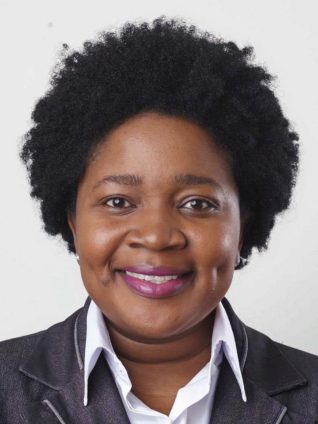Rosalyn Kyere-Nartey, the Founder and Executive Director of African Dyslexia Organisation, has called for the inclusion of Dyslexia management in school curriculum.
This, she said, would promote inclusiveness, personal development and unearth the hidden talents of children with Dyslexia.
At a Dyslexia Educational Stakeholder’s Forum on the theme: “Rethinking Inclusivity in Education, Addressing the Needs of Dyslexic Students,” Madam Kyere-Nartey said teaching methods needed some revision to help create a convenient learning environment for Dyslexic children.
“The policy makers must take cues from these conversations back to the Education Ministry and Ghana Education Service and relook into things so when we are addressing inclusion, it won’t be just about physical challenges but those that are hidden.
The approach of teaching students with dyslexia like the multi-sensory approach can be applied to all learning so why are we not doing the best thing? The world is going far, and it is time for Ghana to wake up,” she said.
During an interview with the GNA, she encouraged teachers and parents to show empathy to kids with learning difficulties especially those with dyslexia and avoid labeling and punishing them as this killed their confidence, talents and passion for education.
“Most of the time, we label them as blockheaded in our local languages and we worry them so much that many drop out of school and end up leading wayward lives. We are losing talents.
"Globally, many millionaires and successful people are dyslexic. The likes of Richard Branson, Will Smith, Leonardo da Vinchi, Albert Einstein, Steve Jobs are all dyslexic yet very creative, innovative and have solved many issues in the world,” she said.
All the above and many more examples, she said were doing well hence dyslexic Ghanaian children, if given the necessary support, would equally flourish.
The forum, sponsored by the British Council, attracted public figures and celebrities with dyslexia to share their experiences, growing up with the condition.
Some of these notable individuals included Nana Ansah Kwao IV, the Chief of Akwamu Adumasa and a media personality, Kwame Nsiah-Apau, widely known as Okyeame Kwame, and Reverend John Nii Mota Oquaye, son of a former Speaker of Parliament, Michael Oquaye.
Okyeame Kwame narrated how he suffered in the hands of his parents and teachers due to the condition and how it influenced his sense of empathy towards victims, unearthed his talents and positively altered his career path.
“My dad was really disappointed in me because he didn’t find out that I had this challenge so, he beat me often and sanctioned my teachers to do same. I grew up quite depressed…because I went through that much pain, I am able to identify the pain of others and come to their aid.
Whenever I am creating music, writing a drama or running something, my creativity is not just based on exciting people but, on how I can use tools to create something that will foster inclusion,” he said.
Nana Ansah Kwao IV also narrated a similar experience with his parents growing up as a child with dyslexia.
“My father was the research manager for Bank of Ghana, being their first born; I was such a disappointment to them. They changed schools severally and did all they could but things were still the same,” he said.
He however touched on the need to raise more awareness and educate people, especially educational stakeholders, on the condition for such children to be assisted and not ostracized.
Dyslexia is a learning disorder that involves difficulty reading because of challenges in identifying speech sounds and how they relate to letters and words (decoding). It occurs as a result of individual differences in areas of the brain responsible for language processing.
The condition has no relation to intelligence, hearing or vision hence such children can still succeed in school with the help of specialized tutoring and a healthy dose of emotional support and encouragement.
The learning disability affects one in five individuals globally.
Though there is no known cure for dyslexia, early assessment and intervention often results in the best outcomes.
In sub-Saharan African countries such as Ghana, data and statistics is widely unavailable because the condition goes undiagnosed for years and not often recognised until adulthood.
Latest Stories
-
I almost regretted sharing videos – Real Warri Pikin on backlash after weight loss surgery
13 mins -
Recording BVR kit serial numbers will help trace and match data – NDC justifies demand from EC
23 mins -
Real Warri Pikin reveals she had to refund contractual fees due to ill-health
24 mins -
Book prices to go up by 60% in September due to escalating taxes – GNAAP announces
28 mins -
Lack of toilet forces suspect to defecate on himself at Bole magistrate court
34 mins -
Otumfuo@25: Golden Stool to be on display at grand durbar of Asantehene’s silver jubilee
37 mins -
‘Magnificent’ Kumasi International Airport ready for commissioning
48 mins -
Cocoa beverage reduces BP, hypertension in older adults – KNUST research
1 hour -
Hearts of Oak lineup like army; every player in the squad can come in – Aboubakar Ouattara
2 hours -
Puzuri Group partners with NSS to drive agricultural innovation and youth employment
2 hours -
GFA sign three-year partnership deal with LeLe Foods Ghana Ltd
2 hours -
NDC raises more concerns over EC’s integrity over missing BVR kits
2 hours -
OmniBSIC offers lowest interest rate on loans to SMEs over a period of 5 years – BoG
3 hours -
Bawumia accuses some ECG staff of using ransomware to sabotage paperless system
3 hours -
Blakk Rasta reveals how he became a Christian
3 hours

